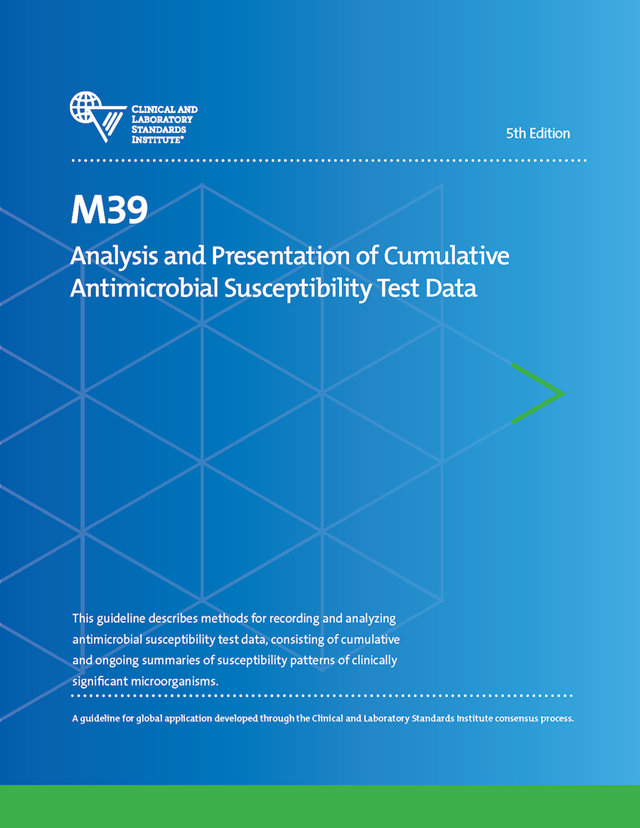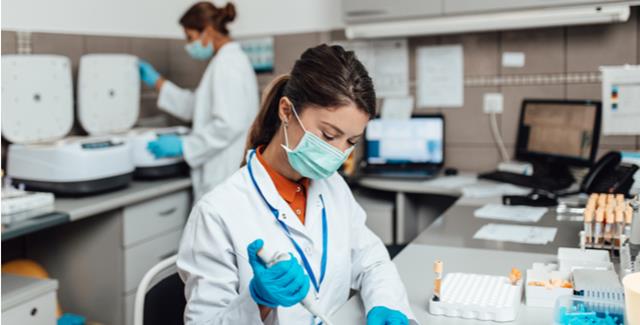Standards Development
We develop the world’s leading standards for clinical laboratory operations.
Our standards documents are recognized across the globe for helping laboratories improve their testing quality, safety, and efficiency. With worldwide collaboration, our standards are crafted with an emphasis on creating broad consensus.

What's New:

See What's In Development

Learn About Corrections and Changes

Comment on New and Revised Standards Drafts
Standards direct labs in doing things the right way, improving patient care as a result.
Our standards provide lab professionals with an easy-to-use formula of how to accomplish the best outcomes, quickly. Our step-by-step documents make these professionals’ jobs easier and ensure that the right systems are in place to ensure quality patient care.
Where are our standards used?
- Hospital, Physician, and Research Laboratories
- Independent and Commercial Laboratories
- IVD Manufacturers
- Pharmaceutical Companies
- Government and Public Health Laboratories
- Regulatory Agencies and Accreditation Bodies
Explore CLSI Standards

CLSI EP39
A Hierarchical Approach to Selecting Surrogate Samples for the Evaluation of In Vitro Medical Laboratory Tests, 1st Edition
This guideline establishes a definition of a surrogate sample, provides recommendations for determining when to use surrogate samples, and describes a process for selecting the most appropriate surrogate sample.

CLSI M39
Analysis and Presentation of Cumulative Antimicrobial Susceptibility Test Data, 5th Edition
This guideline describes methods for recording and analyzing antimicrobial susceptibility test data, consisting of cumulative and ongoing summaries of susceptibility patterns of clinically significant microorganisms.

CLSI H62
Validation of Assays Performed by Flow Cytometry, 1st Edition
This guideline includes validation strategies for cell-based assays performed by flow cytometry. This guideline also includes recommendations for instrument qualification and standardization and assay optimization. It also covers recommended practices for the examination and postexamination phases.
"If you're a person who cares about laboratory medicine, about the quality of the results that get to the patient...you really need to volunteer."
Andrew Quintenz
Board of Directors Member, CLSI
Global Scientific & Professional Affairs Manager, Bio-Rad Laboratories, Inc.
Current Opportunities
Don’t see an opportunity in your area of expertise? Complete your volunteer profile to get updates about new opportunities when they’re posted.
Looking to apply for an AST Working Group?
How to Volunteer

Create an Online Account or Login
It’s easy, free, and takes only a few minutes. Already have an account? You can login here too.

Complete Your Volunteer Profile
Once you complete your profile, you’ll receive updates about opportunities in your area of interest.

Apply for Current Opportunities
CLSI sends new volunteer opportunities every month via e-mail. You can also check back here or in your CLSI Exchange account to view opportunities.

Get Notified About Your Application
If selected, you’ll be notified about your committee position and start date via e-mail. You can learn more about the volunteer process at our Standards Development Process page.
Qualifications
Our volunteers come from diverse professional backgrounds and include health care, government, and industry professionals with the common goal of improving the quality of medical laboratory testing.
- Familiarity with CLSI’s standards.
- Experience in that area of laboratory science (varies by opportunity).
- Ability to work well in a group setting during the time frames listed on the opportunity.
- You don’t need an advanced degree to participate.
Payment of an annual administrative fee is required for participation on CLSI committees. If you or your organization is a member of CLSI, the annual fee is included in your membership dues and no additional payment is required. More information on CLSI membership can be found here.
What to Expect
On average, it takes 18-24 months to complete a CLSI document. As a committee volunteer, you are asked to commit to participating for the duration of the project.
Volunteers meet regularly—in person and via conference call—throughout the development process to review the draft document, discuss and resolve issues related to the document's content, and to make sure the committee is on schedule with respect to the document development timeline.
Groups & Committees
Working Groups
CLSI's working groups focus on tasks that support the work of a subcommittee. A working group's assignment is usually limited in scope. They can include writing a document, a section of a document, or conducting a technical study.
Subcommittees
Subcommittees are responsible for documents in a topic area. They write draft documents, evaluate and respond to comments on content throughout the document development process, conduct scheduled document reviews, and may be responsible for continual revision of certain documents.
Document Development Committees
Comprised of a balanced representation from government, industry, and the health care professions, a CLSI document development committee is a group of technical experts who work together to develop a CLSI document.
Expert Panels
Expert panels are responsible for identifying and proposing projects and advising the Consensus Council on their suitability. Their focus is on reviewing, commenting on, and voting on documents within their area of expertise.
Consensus Council
The Consensus Council sets priorities for and manages CLSI standards development and identifies continual improvement opportunities for standards development-related processes. The Consensus Council also votes on Final Draft documents to confirm adherence to process requirements.
Board of Directors
The CLSI Board of Directors fulfills CLSI's mission by supervising, controlling, and directing CLSI's affairs; assuring the integrity of the voluntary consensus process.


